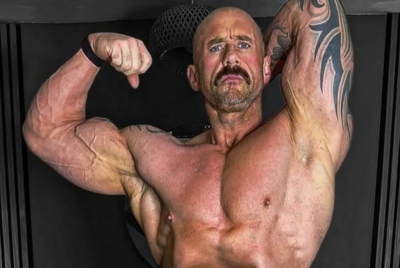Amber Czech's Death Avoidable? Trades Groups Slam Bosses For Ignoring Gender Threats
Advocates say industry must close safety gaps that leave tradeswomen vulnerable.

A 20-year-old welder was killed at her workstation by a male colleague who later told police he had 'been planning to kill her for some time'.
The arrival of surveillance footage, arrest records, and an official sheriff's statement has transformed what might once have been written off as a tragic one-off into a stark warning about gendered violence on industrial sites. Amber Czech, described by family and former teachers as a gifted and committed young tradeswoman, was found with catastrophic head injuries at Advanced Process Technologies in Cokato, Minnesota, on 11 November 2025; a male co-worker, David Bruce Delong, 40, was arrested at the scene and charged with second-degree murder.
The Attack And Arrest
Police were called to the Advanced Process Technologies plant at around 06:00 on 11 November 2025 after a report of an injured employee. First responders attempted life-saving measures, but Amber Czech was pronounced dead at the scene; investigators recovered a bloody sledgehammer near her workstation.
Surveillance footage, described in the criminal complaint and reported by county officials, shows the suspect leave his own station, pick up a sledgehammer, and return to where Czech was working before striking her multiple times. The accused allegedly admitted to a co-worker, 'I hit her with your hammer, she is by your toolbox, she is gone,' and later confessed to deputies that he did not like the victim and had planned the attack.
Wright County Attorney Brian Lutes said he was considering whether to seek a first-degree premeditated murder charge and noted the apparent deliberation captured on video. The defendant remains in custody; second-degree murder in Minnesota can carry a prison term of up to 40 years. Court dates and grand jury review were scheduled in the days following the arrest.
A Pattern Of Risk: Women On Industrial Sites
The killing of Amber Czech has reverberated far beyond Cokato because it echoes a growing body of concern among tradeswomen and safety advocates: worksites remain places where gendered harassment and, in rare but devastating cases, lethal violence occur. Industry groups and unions say that while fatal attacks are uncommon, everyday sexism, isolation of lone female workers, inadequate reporting routes, and poor site supervision create environments in which women are more vulnerable.
Engineering News-Record, which has examined the incident in the context of industry safety, warned that the sectors that build and maintain food, dairy, and process equipment are still male-dominated and often lack bespoke policies for protecting women from colleague-on-colleague threats. Employers, the paper urged, must do more than issue general safety memos; they must install robust reporting systems, improve supervisor training, review shift patterns that leave workers isolated, and ensure that security cameras and emergency response measures are both present and regularly audited.
Those calls are rooted in evidence from advocacy groups and trade organisations that catalogue harassment and near-misses on sites where women are a small minority. Organisations representing tradeswomen say prevention requires both cultural change and concrete safety steps: buddy systems for isolated tasks, strict tools-and-access controls, clearer sanctions for aggressive behaviour, and independent channels for complaints so women are not forced to rely on peers or local supervisors to act.
Calls For Change From The Trades
National and regional tradeswomen's groups reacted swiftly to Amber Czech's death, characterising it as an avoidable loss and demanding urgent action. The National Association of Women in Construction (NAWIC) announced an emergency town hall and published a statement calling for immediate review of workplace safety policies to better protect women on shop floors. The statement described the killing as 'devastating' and insisted businesses treat gender-based threats with the same priority given to machinery hazards and chemical risks.
Family and community fundraising efforts also highlighted the human impact beyond policy debates. A GoFundMe launched for Amber's family had raised roughly $75,000 (about £57,000) within days of the incident, a measure of the local shock and support but also a reminder that communities often provide the first and most visible forms of solace after institutional failures.
Legal voices emphasise that accountability must follow; Wright County officials have indicated they are reviewing charges after the footage and the suspect's alleged admissions. Prosecutors and safety regulators alike face the twin tasks of securing justice in the individual case and working with employers to ensure structures are in place to prevent future tragedies.
Amber Czech's death is both an individual catastrophe and a catalytic moment for an industry that relies on women's skills yet often fails to protect them. For those who knew her, coaches, teachers, and family, she was a young woman who loved welding and had a future in the trades; for the sector, her killing is a blunt instruction that more must be done to make workplaces safe for everyone.
Amber's case will proceed through the courts, but the conversations it has prompted about supervision, culture, and protection on industrial sites must begin now if other workers are to be spared the same fate.
© Copyright IBTimes 2025. All rights reserved.





















